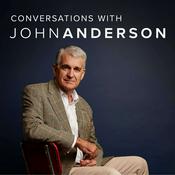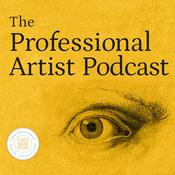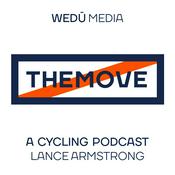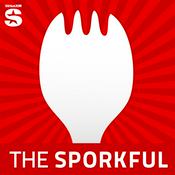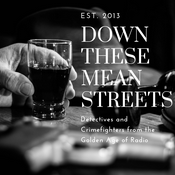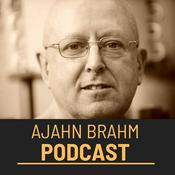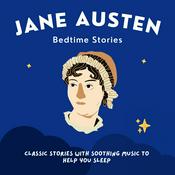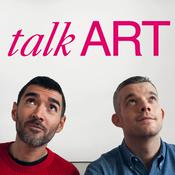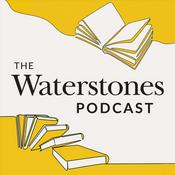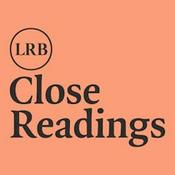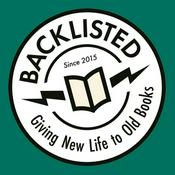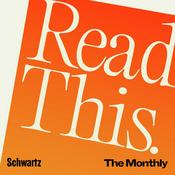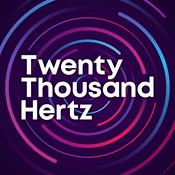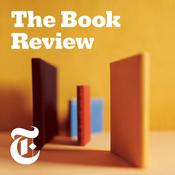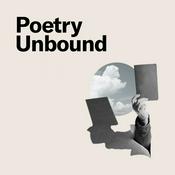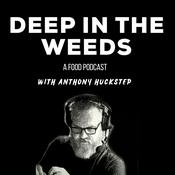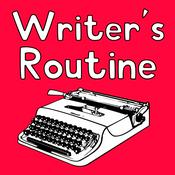206 episodes

Michelle DiBucci: Deep insights from a cross-genre composer, artistic innovator, and professor of music and drama at the Juilliard School
03/01/2026 | 37 mins.
Composer Michelle DiBucci is a versatile artist whose work spans theater, opera, dance, and film. Michelle has made significant contributions to contemporary music, having collaborated with renowned ensembles like the Kronos Quartet and created works performed at prestigious venues such as Alice Tully Hall and the Komische Oper in Berlin. Her rich background includes studying under esteemed composers like Louis Andriessen and teaching at Juilliard since 1992, where she shares her passion for music and theater with aspiring artists.In this first part of our conversation, we explore Michelle's early influences, from her childhood experiences with television soundtracks to her pivotal moment of discovering the relationship between music and visual storytelling. She shares her journey from acting to composing, detailing how mentorship shaped her path and the lessons learned along the way. Michelle’s insights into music composition reveal the intricate balance between creativity and the realities of the industry.[Subscriber Content] In the second part, we delve deeper into her composition approach and the collaborative process behind her compositions. Michelle discusses memorable projects, including her opera based on Charlotte Solomon’s life, and highlights her thoughts on the changing landscape of music education and the impact of technology on future generations of musicians. This section offers valuable perspectives on navigating a career in music, alongside a reflection on the importance of live performances in an increasingly digital world.Would you like more inspirational stories, suggestions, insights, and a place to continue the conversations with other listeners? Visit anthonyplog-on-music.supercast.com to learn more! As a Contributing Listener of "Anthony Plog on Music," you'll have access to extra premium content and benefits including: Extra Audio Content: Only available to Contributing Listeners. Podcast Reflections: Tony's written recaps and thoughts on past interviews, including valuable tips and suggestions for students. Ask Me Anything: Both as written messages and occasional member-only Zoom sessions. The Show's Discord Server: Where conversations about interviews, show suggestions, and questions happen. It's a great place to meet other listeners and chat about all things music! Can I just donate instead of subscribing? Absolutely! Cancel at anytime and easily resubscribe when you want all that extra content again. Learn more about becoming a Contributing Listener @ anthonyplog-on-music.supercast.com!

Frederica von Stade and Jake Heggie: Two humble titans of opera and music on their musical friendship - Powerful nuggets of wisdom and heartwarming stories!
14/12/2025 | 1h 6 mins.
In this special episode, we're joined once again by two extraordinary figures in the world of opera, mezzo-soprano Frederica von Stade, affectionately known as Flicka, and composer Jake Heggie. Flicka has graced the great opera houses and concert halls for over four decades, known for her captivating performances in roles by Rossini and Bellini, as well as her powerful interpretations of modern works like Heggie's own operas, including Dead Man Walking. Jake is renowned for his operas, having created over ten full-length works, including the widely acclaimed Moby-Dick and, of course, Dead Man Walking.In Part 1, we delve into their creative partnership, particularly focusing on their song cycle Paper Wings, inspired by Flicka's children. They share personal stories about the songs that resonate universally, illustrating how specific experiences can lead to broader emotional connections in art. The discussion also touches on the joy of collaborating and the importance of maintaining humor in their performances.[Subscriber Content] In Part 2, Jake and Flicka reveal more about their personal journeys with music and performance, including the importance of pushing through those dreaded "bad days" where things just don't seem to work right. Flicka discusses the emotional depth in her interpretations, while Jake reflects on the significance of trust in music. Their insights provide a deeper understanding of the art of singing, composing, and music in general enriching the listener's appreciation for the nuances of opera and lyrical storytelling. Listen in for a heartwarming conversation filled with memories, laughter, and profound insights into the world of music and creativity.Would you like more inspirational stories, suggestions, insights, and a place to continue the conversations with other listeners? Visit anthonyplog-on-music.supercast.com to learn more! As a Contributing Listener of "Anthony Plog on Music," you'll have access to extra premium content and benefits including: Extra Audio Content: Only available to Contributing Listeners. Podcast Reflections: Tony's written recaps and thoughts on past interviews, including valuable tips and suggestions for students. Ask Me Anything: Both as written messages and occasional member-only Zoom sessions. The Show's Discord Server: Where conversations about interviews, show suggestions, and questions happen. It's a great place to meet other listeners and chat about all things music! Can I just donate instead of subscribing? Absolutely! Cancel at anytime and easily resubscribe when you want all that extra content again. Learn more about becoming a Contributing Listener @ anthonyplog-on-music.supercast.com!

Karl Schagerl and Jack Burt: An Austrian instrument-making legacy in conversation with a leading trumpet educator on innovation, mentorship, and musical community
25/11/2025 | 47 mins.
Karl Schagerl is a leading figure in the world of instrument making since he joined his family's business in 1976. Based in Mank, Austria, Karl has worked and collaborated with a long list of world-class artists, a few of which include Hans and Thomas Gansch, James Morrison, Gabor Tarkovi, and Selina Ott.Dr. Jack Burt, is a distinguished professor of trumpet and performing artist who has contributed extensively to the trumpet community, both as an educator and a performer. Jack's connection to Karl began with a chance introduction through mutual musical interests, leading to a lasting collaboration.In this conversation, we'll explore the fascinating story of how Karl and Jack first connected, sparked by a shared love for Austrian folk flugelhorn duets and a chance recommendation from jazz legend Peter Erskine. Jack talks about how he first reached out to Karl for some music and CDs, which eventually led to their meeting at a brass concert years later. Karl shares how this initial interaction grew into a professional friendship with plenty of stories and impactful insights along the way.[Subscriber Content] In the remainder of the discussion, Karl reveals more about the business side of Schagerl Instruments, discussing their global outreach and how they've continued to innovate in response to evolving musical demands.Would you like more inspirational stories, suggestions, insights, and a place to continue the conversations with other listeners? Visit anthonyplog-on-music.supercast.com to learn more! As a Contributing Listener of "Anthony Plog on Music," you'll have access to extra premium content and benefits including: Extra Audio Content: Only available to Contributing Listeners. Podcast Reflections: Tony's written recaps and thoughts on past interviews, including valuable tips and suggestions for students. Ask Me Anything: Both as written messages and occasional member-only Zoom sessions. The Show's Discord Server: Where conversations about interviews, show suggestions, and questions happen. It's a great place to meet other listeners and chat about all things music! Can I just donate instead of subscribing? Absolutely! Cancel at anytime and easily resubscribe when you want all that extra content again. Learn more about becoming a Contributing Listener @ anthonyplog-on-music.supercast.com!

Chris Gekker and Eric Ewazen: From Eastman classmates to lifelong collaborators—on the esteemed "Colchester Fantasy", the craft of composition, and a fantastic example of performer/composer collaboration
08/11/2025 | 41 mins.
In episode number one of SEASON 6 (!), we are joined by two remarkable figures in the world of music and cherished in the brass community: Chris Gekker and Eric Ewazen. Chris is a celebrated trumpet professor at the University of Maryland and has performed as a soloist at prestigious venues like Carnegie Hall. His rich career includes collaborations with many composers, showcasing his dedication to both performance and new works. Eric, a prolific composer and educator, has a long history of writing for brass instruments, with works performed worldwide. He has taught at Juilliard and has garnered numerous awards for his compositions.In this first part of our conversation, Chris and Eric share their memorable experiences from their time at the Eastman School of Music, where they first crossed paths. They discuss their early influences, the importance of collaboration, and the creative processes that shape their work. As Chris reflects about Eric's writing, "When he writes a piece, he creates a dialogue, and it’s a very creative process."[Subscriber Content] In the second part, we dive deeper into their collaboration on various pieces, including the intricacies of composing and performing. They’ll share insights about their teachers, including a few key lessons learned from significant figures in their musical journeys. Eric’s experience with writer’s block and their approach to revising works are enlightening. Chris notes concerning writing specifically for trumpet, "We’re not babies. We can handle difficult music, but you need to give us a break," emphasizing the unique physical challenges trumpet players face. Stay tuned for their engaging discussions about the future of their collaborations and how their friendship continues to flourish through music.Would you like more inspirational stories, suggestions, insights, and a place to continue the conversations with other listeners? Visit anthonyplog-on-music.supercast.com to learn more! As a Contributing Listener of "Anthony Plog on Music," you'll have access to extra premium content and benefits including: Extra Audio Content: Only available to Contributing Listeners. Podcast Reflections: Tony's written recaps and thoughts on past interviews, including valuable tips and suggestions for students. Ask Me Anything: Both as written messages and occasional member-only Zoom sessions. The Show's Discord Server: Where conversations about interviews, show suggestions, and questions happen. It's a great place to meet other listeners and chat about all things music! Can I just donate instead of subscribing? Absolutely! Cancel at anytime and easily resubscribe when you want all that extra content again. Learn more about becoming a Contributing Listener @ anthonyplog-on-music.supercast.com!

Amy Scurria and Ryan Gardner: A multi-award winning composer in discussion with Professor of Trumpet at UC Boulder on building connections, understanding, and highlighting the power of embracing autism in music
30/09/2025 | 52 mins.
Today, we welcome two remarkable guests: composer Amy Scurria and Dr. Ryan Gardner, Associate Professor of Trumpet at the University of Colorado Boulder. Amy, a multi-award-winning composer, has seen her work performed worldwide, including at Carnegie Hall. With a unique perspective shaped by her late autism diagnosis, she began composing at just eight years old, using music as a language to explore her emotions. Ryan, originally from Santa Monica, California, has spent over a decade teaching trumpet and is known for his innovative approaches to performance psychology. He also serves as the artistic director for Music for Autism, a program that creates inclusive concert experiences for autistic individuals and their families.In this first part of our conversation, we dive into the intersections of music and autism. Amy shares her insights on neurodiversity and how it shapes her approach to composing, while Ryan discusses the transformative power of music for autistic audiences. As Amy poignantly states, "Neurodiversity means we’re just scratching the surface of what the human brain is capable of and how it works." Their stories and perspectives promise to offer enlightening views on how music can bridge differences and create connections.[Subscriber Content] In the subscriber section, we delve deeper into Amy's journey as a composer and her educational experiences. She reflects on her influences, including her composition teachers at Rice University and Duke University, and shares thoughts on how improvisation has played a role in her creative process. Ryan also discusses the impactful training he received and the importance of understanding individual learning styles in music education. Their shared wisdom is sure to resonate and inspire anyone interested in the rich tapestry of music education and neurodiversity.DoricoProfessional music notation and composition software from Steinberg. Download a free 30-trial today!Disclaimer: This post contains affiliate links. If you make a purchase, I may receive a commission at no extra cost to you.Would you like more inspirational stories, suggestions, insights, and a place to continue the conversations with other listeners? Visit anthonyplog-on-music.supercast.com to learn more! As a Contributing Listener of "Anthony Plog on Music," you'll have access to extra premium content and benefits including: Extra Audio Content: Only available to Contributing Listeners. Podcast Reflections: Tony's written recaps and thoughts on past interviews, including valuable tips and suggestions for students. Ask Me Anything: Both as written messages and occasional member-only Zoom sessions. The Show's Discord Server: Where conversations about interviews, show suggestions, and questions happen. It's a great place to meet other listeners and chat about all things music! Can I just donate instead of subscribing? Absolutely! Cancel at anytime and easily resubscribe when you want all that extra content again. Learn more about becoming a Contributing Listener @ anthonyplog-on-music.supercast.com!
More Arts podcasts
Trending Arts podcasts
About Anthony Plog on Music
Listen to Anthony Plog on Music, 99% Invisible and many other podcasts from around the world with the radio.net app
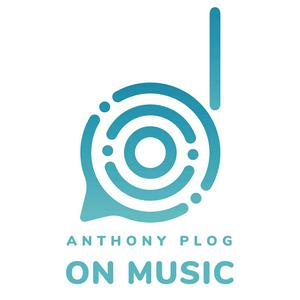
Get the free radio.net app
- Stations and podcasts to bookmark
- Stream via Wi-Fi or Bluetooth
- Supports Carplay & Android Auto
- Many other app features
Get the free radio.net app
- Stations and podcasts to bookmark
- Stream via Wi-Fi or Bluetooth
- Supports Carplay & Android Auto
- Many other app features


Anthony Plog on Music
download the app,
start listening.








